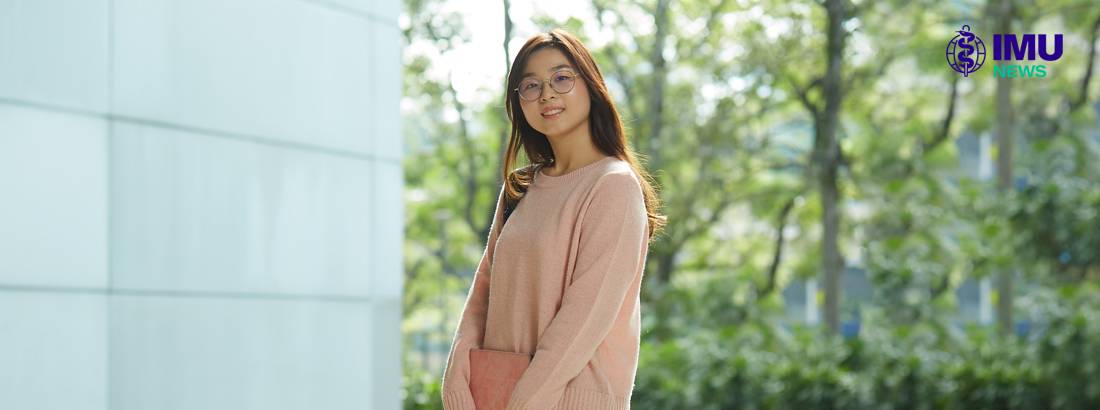There’s an art to everything we do – even in the pursuit of science. The newly launched Foundation in Arts programme at the IMU underscores the importance of both sides of the coin – science and art – coming together to learn, play and discover. Programme director Parkash Mathivanan tells us more.
A successful future starts with a strong starting point and at the IMU, the Foundation in Arts (FIA) programme aims to give students the opportunity to build a solid foundation from which they can grow to greater heights. Focused on the arts, the programme prepares students for a variety of pathways. Within the IMU, FIA students can further pursue their studies in the business administration, psychology, nursing and digital health undergraduate degree programmes, with more programmes being added to the list in the next year.
Like the Foundation in Science (FIS) programme that was established in 2013, students of the FIA will also find many opportunities if they decide to explore other areas of study. “We know students cannot predict the future and they might change their minds about what they want to study. That’s why we prepare them as a whole so that their pathways remain open,” says Parkash Mathivanan, Programme Director of the FIA programme, adding that with the modules offered under the FIA and the credibility of the IMU, students will not have any issues moving forward to their next steps.
Contrary to what it sounds like, the FIA is not just for arts students but also for students who were previously in the science stream who might feel that they want to explore more arts-related subjects. “I used to be a pure science student but I furthered my studies in the arts and now I am in the education industry. You never know where your life will take you,” says Parkash.
Giving Students Structure
The FIA is a year-long programme consisting of three semesters. It is structured around a set of core modules that cover subjects such as business, marketing, communications, psychology, thinking skills as well as basic maths and statistics. “These core modules have been curated based on what we think will be useful for all students no matter what field they choose to go into,” explains Parkash.
In addition to these compulsory subjects, students are given a range of electives each semester. These electives include more targeted modules such as Psychology in Healthcare; Science, Technology and Society; and Fundamentals of Finance. “We want to give students some flexibility without being overly fluid. The structure of the FIA helps students finish their studies within the allocated year, rather than prolonging it up to two years as this would waste a student’s time and money,” says Parkash.
Under One Roof
The FIA is housed together with the FIS under the Centre for Pre-University Studies (CPU). This brings a bonus for students from both programmes to widen their perspectives by sharing some core modules such as English for Academic Purposes and Computing Studies.
These combined classes mean students will work together on assignments and presentations, which exposes them to working with people of different strengths and interests. “The arts and sciences can complement each other and we want it to start at the foundation level,” says Parkash, adding that it is important to cultivate a multidisciplinary environment so that students understand each other better. “We want to take away the stigma of one field of study being less than another,” he says.
A Taste of the Real World
Another unique feature of the FIA is a module aptly named Cross Boundary Studies. In the module, students are given a task to design a practical community project. When designing the project, students will utilise communication skills and knowledge of psychology to engage with the communities on the ground and identify the beneficiaries’ needs. Then, when the project is implemented, students have to practise their fundraising and logistics skills from their management and finance modules. “This is how the project brings together a range of skills across the boundaries of different subjects,” explains Parkash.
The module is inspired by the IMU’s philosophy of giving back to the society. “We want to instil this spirit in our students so that wherever they end up, they understand the need for social responsibility,” says Parkash. Other students in the IMU have already been rolling out successful initiatives that have helped communities around them and are proof that the module sows the seed of social responsibility in students.
Supporting Students
When they join the IMU, students come with various expectations and experiences in their secondary schooling. “Many expect that the university culture will embrace them, rather than them embracing university culture. It’s a shift of mindset that can make some students feel lost,” says Parkash. To help students make this initial transition and assimilate into the university’s culture, FIA students are assigned faculty mentors. The mentors also support students throughout the programme.
According to Parkash, students are generally timid when they first join foundation studies. “But by semester two, they start to express themselves better and we can start to identify their potential,” he says. Mentors work with students so that they can fulfil their potential and rise above the crowd. “We want to cultivate their potential to a level that benefits them in the future. At the same time, they become ambassadors of the FIA programme as well,” says Parkash.
Growing into the Future
FIA offers students a unique setting to start their journey into their futures. Modules have been carefully created to inculcate the exploratory nature of the arts in students. “We want students to explore and in so doing, create a life that fulfils their best potential while giving back to society and the communities they serve,” says Parkash.
Students are also given the opportunity to be a part of the programme’s development. “We want students to explore the FIA and share their insights on its strengths and areas for improvement. Together, we aim to improve the programme, ensuring it meets the needs and aspirations of our community,” says Parkash. This has been a feature with all programmes at the IMU, where student representatives are invited to share their feedback at curriculum assessment committee meetings. “We value students’ thoughts and comments and strive to enhance the programme in alignment with their needs,” says Parkash.
A stepping stone into the future, the FIA is built on a commitment to empower students to achieve their goals, and to rise above the crowd. Start your journey with the FIA. Learn and gain knowledge. Play with new concepts and discover the best in yourself.



